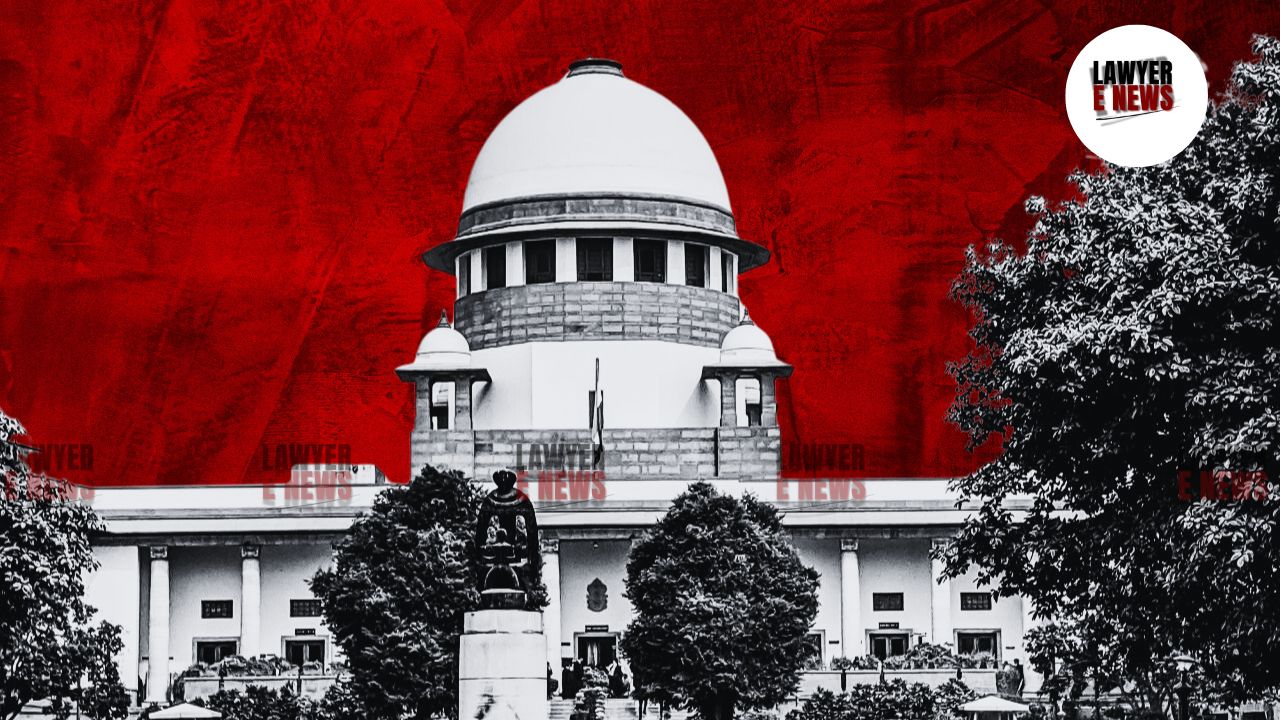-
by Admin
16 February 2026 1:47 PM



Requirement of Affidavit for Section 156(3) CrPC Complaints Is Prospective, Not Retrospective - In a significant judgment Supreme Court dismissed an appeal challenging the validity of an FIR registered in 2011, ruling that the requirement for an affidavit under Section 156(3) CrPC, as laid down in Priyanka Srivastava v. State of U.P. (2015) 6 SCC 287, would apply prospectively and not to cases instituted before the ruling.
The case arose from two FIRs registered against Kanishk Sinha and his wife under Sections 120B, 420, 467, 468, 469, and 471 IPC, read with Section 66A of the IT Act. The appellants had moved the Calcutta High Court seeking to quash the FIRs, arguing that the second FIR was not accompanied by an affidavit as required under Priyanka Srivastava. The High Court rejected their plea, holding that the requirement for an affidavit was a prospective directive and did not apply to complaints filed before 2015.
Dismissing the appeal, the Supreme Court ruled that "the Priyanka Srivastava judgment was intended to prevent the misuse of Section 156(3) CrPC in future cases and cannot be applied retrospectively to invalidate FIRs registered prior to the ruling."
"Law Declared by Courts Is Generally Retrospective, But Exceptions Exist for Preventing Disruptions"
The appellants contended that "judicial decisions are generally retrospective unless specifically stated otherwise, and there was no explicit mention of prospective applicability in Priyanka Srivastava." They argued that the absence of an affidavit in the 2011 FIR made the proceedings illegal.
Rejecting this argument, the Supreme Court ruled that "while judicial pronouncements are typically retrospective, exceptions are made when retroactive application would disrupt settled legal positions or cause undue hardship to those who acted in good faith under the old law."
The judgment clarified that "the requirement for an affidavit in complaints under Section 156(3) CrPC was introduced as a procedural safeguard against frivolous litigation. Given that such a requirement did not exist before 2015, its enforcement on past cases would be legally unsound."
"Affidavit Rule Was Introduced to Curb Abuse, Not to Nullify Past Proceedings"
The Court explained the rationale behind Priyanka Srivastava, noting that "the affidavit requirement was aimed at curbing misuse of the Magistrate’s power to direct police investigations. It was not meant to retroactively invalidate complaints filed in good faith before the ruling."
Quoting Priyanka Srivastava, the judgment highlighted that: "A stage has come in this country where Section 156(3) CrPC applications are to be supported by an affidavit... This affidavit can make the applicant more responsible and prevent harassment through frivolous complaints."
The Supreme Court found that the Calcutta High Court had correctly interpreted Priyanka Srivastava as a procedural directive that applied only to future cases and could not be used to challenge FIRs registered years before its pronouncement.
The Supreme Court noted that charge sheets had already been filed in both cases and directed that if the appellants wished to contest their prosecution, they were free to file discharge applications before the trial court. The Court ruled that "if the charges have not been framed, the appellants may apply for discharge, which shall be considered in accordance with law."
Dismissing the appeal, the Supreme Court ruled: "The requirement of an affidavit for Section 156(3) CrPC applications, as laid down in Priyanka Srivastava, is prospective in nature and does not affect cases instituted before 2015. The challenge to the FIR on this ground is meritless. The appellants, however, are at liberty to seek discharge before the trial court."
The Supreme Court’s ruling clarifies that "procedural safeguards introduced by judicial decisions do not automatically apply retrospectively, especially when doing so would unsettle past proceedings."
By rejecting the argument that Priyanka Srivastava invalidated pre-2015 complaints, the judgment ensures that criminal law evolves without disrupting settled cases and that safeguards against misuse apply only prospectively.
Date of decision: 27/02/2025
